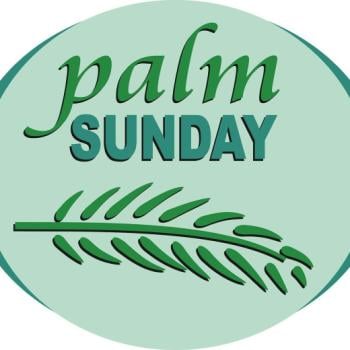Asking a religion writer to predict where spiritual writing and reading are going to go in the next few decades is a bit like asking an old salt to predict tomorrow's weather. He or she may ultimately be as wrong as wrong can be, but it won't be for lack of obsessive concern with the whole thing. Unlike the weather, however, which tends to be fairly consistent in how it delivers itself and the forms in which it operates, the business of "books" and "reading" have of late become so varied as almost to require prior definition before any useful predicting can be done. A book just isn't your grandfather's bound object any more, nor is reading an activity your grandmother would necessarily be able to relate to, much less be completely equipped to engage in.
Visit the Patheos Book Club on 25 Books Every Christian Should Read for more conversation on essential spiritual reading for our time.
We've been watching this shift, of course, for at least two decades now in that we have long since had to admit that some of the best spiritual and/or religion "writing" was being done by means of net-based delivery systems like blogs and social network pages . . . or, ironically, net-zines like this one. That is not going to change. It also has its virtues. That is, despite its sometime limitations editorially speaking, such an open system allows for massive dissemination of any piece of writing that moves its readers or in some way enters their lives with impact and beneficence. Whether or not such worthy material will find longevity and/or permanence still has to remain a concern for any thinking person.
More prophetically interesting to me, however, is the book that presently goes under the unfortunate denominator of the "enhanced book." Equally unfortunate is the fact that I don't have a better name by which to call it, nor apparently does anyone else. The awkwardly-named is, none the less, exhilarating and compelling and seductive. Unless I am a crazed prophet, it is also the spiritual or religion book of the near . . . and perhaps the far . . . future.
Electronic in delivery medium, it reads like a book, but with all the exhilarating and incarnating impact of moving visuals, vibrant color, subtle and nuanced graphics. Some few months ago, the Irish cleric and writer, Greg Fromholz, released what, in my opinion, is the first fully-realized religion title in this format. The book, Liberate Eden, evidences more about what God's folk will be reading over the next few decades and with what parts of their personal sensorium than I could ever relate here, even if I had the space and you had the time.
Having said that, however, there is another rather charming or endearing pattern emerging in spiritual writing and this one has to do with devotional books—not the transient, mini-homily, teach-you-how-to-get-through-today ones, but the sober-sided, deeply traditional, disciplined, and disciplining ones that absorb the heart and the mind into formative meditation and sustained examination. Not only are such books enjoying solid, and even increasing sales, but they, unlike many other genres and despite the common wisdom, are doing so in the traditional hardback format of beautifully and cleanly produced books. Apparently, one does not yet want to take one's Kindle or iPad or smart phone to bed at night for meditation and deep worship. For that, the "book book" seems to be fully ensconced in the place of honor.
As for genres, which after all are more significant supposedly than the package or delivery system (though I increasingly doubt that particular piece of common wisdom as well), I don't see our great poets yet. We don't seem just now to have a Hopkins or an Eliot running about and singing to us. But we will. My holy, or at least my reverent, bet is that somewhere among us there is, or soon will be, a poet or two who will write us the mystery and who will do so in the rhythmic or even musical half-prose of a post-literate sensibility.
Whatever else is going to happen in spiritual writing, the coming classics that both we and the ages will celebrate are going to speak obliquely and intuitively about the mystery, about the glorious enigma of faith, about the non-definable that we all know is there, the world that has a geography but comes to us sans Tourist Bureau promo shots. The engagement of doctrine and the intellectualization of belief will not cease to furnish subject-matter for the books to be written and sifted in the years between us and the mid-century, but the approach to that material will be much more subtle, beautifully rendered, and humbly offered than, generally speaking, has been true over the last century or two.
For many of the same reasons, we will see more of Orthodoxy not only in those forgettable books that we read as a means of diurnal and ordinary sustenance, but also in the classics that will rise up to become the treasures we hand on to the cadres of Christians yet to come. That "more of Orthodoxy" will certainly include the outright incorporation of Orthodoxy's story and theology in much of what is written over the next few decades. Those things are part and parcel of our western or latinized Christian yearning back toward a global Christianity and a Church Universal. But Orthodoxy will also become the cachet—the sweet perfume—just lightly scenting much of our spiritual writing, especially in the essay format. Already we see an increase in the number of Orthodox writers selling successfully in the American market, just as we see among our non-Orthodox writers an increasing employment in their work of things like the use of icons in spiritual growth, the practice of the Jesus Prayer, the aesthetic power of eastern liturgical accoutrements etc.
-350x350.jpg)



